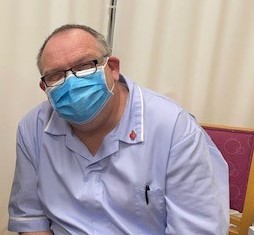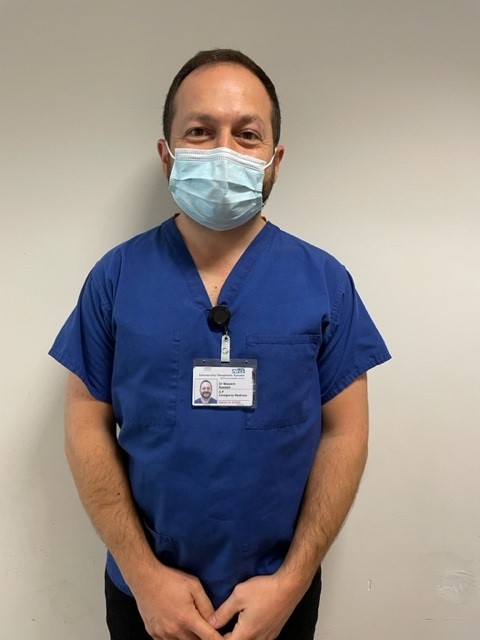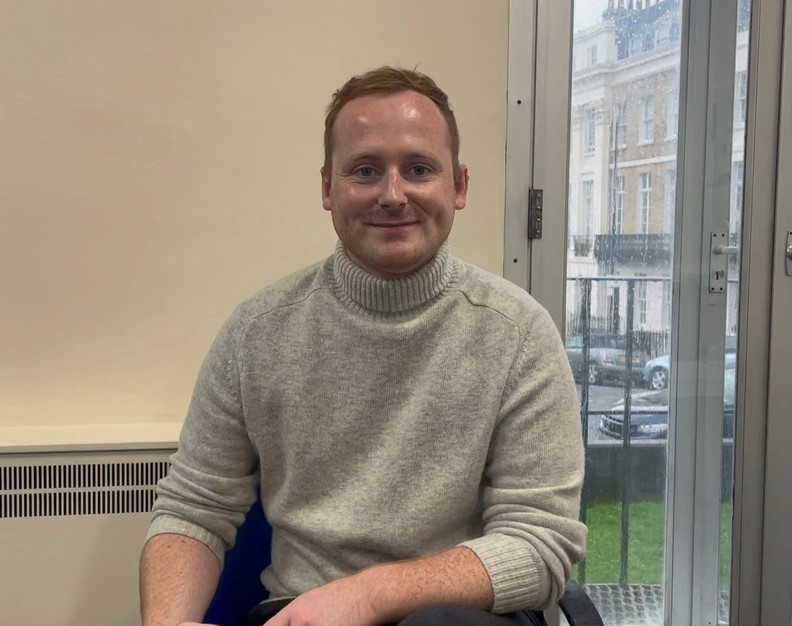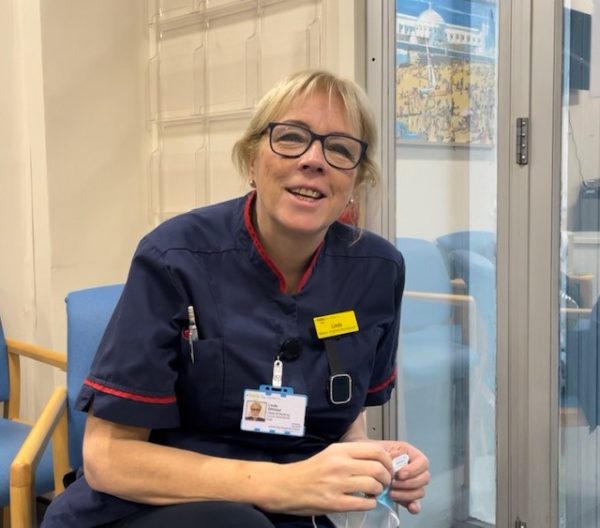
On the two-year anniversary of the national vaccine rollout for Covid-19, it’s incredible to look back and see how far we’ve come. Not only have the vaccines helped to prevent serious disease through supercharging the nation’s immunity, they have also allowed friends and families to be together again.
Of course, this doesn’t happen without an awful lot of hard work behind the scenes, and we are extremely grateful to all the NHS colleagues and volunteers who have played a part in the vaccination programmes nationally and in Sussex delivering over 143 million doses to date.
This includes many of our own colleagues, some of whom are leading the helm on this year’s staff vaccinations programme, helping to ensure our workforce is protected from Flu and Covid.
And so, to mark the anniversary, we caught up with the UHSussex 2022/23 vax team to learn more about their roles and what motivates them to get staff boosted this winter.
Do you work at UHSussex? Don’t forget we have internal clinics running throughout December which are available to book on PathEKS, or can be attended as a walk-in with your NHS number to hand. You can find out more, including how to access vaccines in the community (and report them for our records) on our wellbeing page or via the intranet.
Meet Vikesh Gudka, lead Pharmacist for the UHSussex vaccination programme

How long have you worked at the Trust?
In the early 2000’s I worked at RSCH as a recently qualified pharmacist for a few years before stints at other organisations including Kingston Hospital and St George’s. Having always lived in Brighton, it felt right to return in 2015 to take on the role as Lead Pharmacist for Infectious Diseases and Antimicrobial Stewardship. I had this role for 2.5 years before I became the Clinical Commissioning Pharmacist for the Trust. In October 2021 the Chief Pharmacist Mike Cross asked me to lead the Trust vaccination programme, having supported him in prior years, and I am assisted by my colleague Aoife Hendrick who is our lead Antimicrobial Pharmacist.
How do your team help to deliver the vaccine programme?
The vaccination programme is complex to deliver and must be planned very precisely, from managing the quantities of cold storage vaccine received from central NHS supplies, to ensuring that the right amount of vaccine arrives at clinics on time and in perfect condition to meet staff bookings. Besides this, my team also ensure all policies, procedures and standard operating procedures are reviewed and up to date, and we manage any clinical questions or concerns staff may have.
What’s the most challenging part of your role?
Covid-19 is such a unique disease, and so we need to work hard to ensure that we are providing the safest and most effective ways to fight it. It can be challenging keeping up to date with all the changes, including the different variants and the way the disease is evolving, such as updating the vaccines to the bivalent form. As a Trust, we must continually review our local governance and procedures to ensure they align with national processes and reflect the changing landscape of the virus.
How have the vaccines evolved?
When the original Pfizer vaccine was first introduced it had to be delivered ‘ultra-frozen’ at -80C, resulting in an ultra-freezer being installed in the pharmacy department at PRH. It was interesting to manage as we had to thaw the vaccine in a fridge for a certain amount of time before we could deliver it to clinics, while making sure the vials were not shaken or rattled during transit to avoid molecule disintegration. At that time the vaccine was considered liquid gold! As we have learned more about the vaccines and national requirements have changed, we are now able to store them in normal pharmacy freezers at -20c and transport with less rigidity.
Meet some of our vaccinators:
Tim Eakin, retired UHSussex Directorate Manager and Trust vaccinator for the past three years:

“When the vaccinations came out in 2020 it was wonderful. People didn’t fear serious suffering anymore, and loved ones could be reunited.
“That’s why I wanted to get out there and help vaccinate as many people as I could.”
Dr Waseem Rawdah, GP Emergency Medicine and 2022/23 vaccinator

“I participate in delivering vaccines across the Trust as it provides us with the ability to keep both our colleagues and patients safe, and I also enjoy the environment we work in, which is different to my normal environment both in primary and secondary care.
“It gives me a chance to speak to people receiving the vaccinations, find out a bit more about what they understand and give them further information to help calm their nerves – while answering any questions they may have about the vaccines themselves. It’s great to be part of such a successful team that’s helping to keep everyone safe, especially leading into winter.”
Meet the programme team:
Ger Harries, Deputy Directorate Manager for Clinical Administration

“I’m part of the administration team responsible for the booking system, reception areas and checking staff in at clinics, and making sure vaccinations are uploaded to the national database.
“The work of the team is so important in delivering the programme, and my colleagues have gone above and beyond to support, in addition to their usual roles.”
Linda Gilmour, Senior Nurse and Staff Vaccinations Programme Lead

“Leading the programme to deliver weekly clinics for staff across multiple sites, navigating demand and vaccine supply has been challenging at times.
“But it has also highlighted the brilliant colleagues and team-working across the Trust.”
Natalie Opoku, Physiotherapist and Staff Side Lead

“Staff Side have been an important part of the staff vaccinations programme from the very start, and continue to be involved in the programme, helping to support colleagues and make sure their questions and concerns are heard and addressed.
“This was particularly important in the first roll-out, when there was a lot of uncertainty and fear around the virus including how it impacted people differently. Our efforts helped to ensure high numbers of staff from minority ethnic backgrounds were vaccinated with a primary dose, and we continue to offer help and reassurance to all colleagues two years on.”